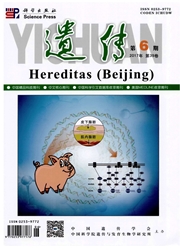

 中文摘要:
中文摘要:
DNA甲基化是表观遗传学的一个重要部分。它参与基因转录调控,X染色体失活,发育调控及细胞分化的过程。异常的DNA甲基化与癌症的发生密切相关。芯片技术的发展为高通量研究DNA甲基化提供了新的方法。各种芯片技术以不同的DNA预处理方法为基础,包括免疫沉淀和限制性内切酶等。免疫沉淀方法特异性高,而限制性酶的方法具有较高的灵敏度。虽然每种方法都有一定的局限性,但是它们为在基因组范围研究癌症的甲基化谱提供了更多的选择。
 英文摘要:
英文摘要:
DNA methylation is an epigenetic modification associated with gene transcription regulation, X-chromosome inactivation, regulation of development and cell differentiation. Aberrant DNA methylation has been linked to cancer. The advent of microarray technology has provided new opportunities for high-throughput study on DNA methylation. Various microarray-based methods depend on different pretreatrnents including immunoprecipitation and restriction digestion. Although each technique has its limitations, the immunoprecipitation method has high specificity, and the restriction digestion method shows high sensitivity. Together they provide many choices to the study of genome-wide DNA methylation profile in cancer.
 同期刊论文项目
同期刊论文项目
 同项目期刊论文
同项目期刊论文
 期刊信息
期刊信息
